Description
ABSTRACT
The Corporate Affairs Commission and the Challenge of Economic Transformation in Nigeria
Dr. Olaniyi Olayinka*
Economic transformation in Nigeria will entail a transition from the mono-source oil economy to a diversified and competitive economy that is heavy on manufacturing and exportation of goods and services. The Corporate Affairs Commission regulates and supervises the formation, incorporation, registration, management, and winding up of companies. The responsibility also extends to registration of business names, limited and unlimited liability companies, incorporated trustees (communal, religious and charitable associations). The discharge of these functions has however not stopped the relocation of manufacturing companies from Nigeria to neighbouring West African countries. The reliance on market forces, for the purposes of driving economic transformation has not worked in Nigeria as the required infrastructure is either in deplorable state or out rightly non-existent. The article explores Nigeria’s challenge with economic transformation and the role of the Corporate Affairs Commission in the Ease of Doing Business in the country.
INTRODUCTION
The attainment of a restructured economy was President Buhari’s campaign promise at Chatham House when his political party undertook to run a functional economy that works for all, the rich and the poor alike.1 The Nigeria’s economic system relies on legal, institutional and infrastructural foundation to flourish.2 In the circumstances, promulgation of laws, formulation of regulations, policies, provision of public infrastructure make economic agents function optimally and profitably. The law and the rule of law as dispensed by the judiciary, guarantee property rights and contract enforcement, which provide for growth of businesses and for economic growth.3 Transformation of the economy entails restructuring which results in economic development and growth. By the provisions of Section 16(1) of the 1999 Constitution, the Government is under an obligation to harness the resources of the nation and promote national prosperity and an efficient, dynamic and self-reliant economy. This assures maximum welfare and happiness for all citizens.4
The Government facilitates economic activities, directs and supervises general business organisations and the financial services sector.5 Thus, pursuant to its powers under the Constitution, the National Assembly establishes statutory bodies and corporations.6 One of such bodies is the Corporate Affairs Commission (CAC).7 The Commission acts as a driving force for the realisation
* LL.B (LASU), LL.M (Ife), LL.D (Pretoria); Deputy Registrar (Legal Matters), The Polytechnic, Ibadan.
- See Adamu Abuh & others, ‘Prospects for Democratic Consolidation in Africa: Nigeria’s Transition’ (Address Delivered at Chatham House, London) accessed 1 March 2015
- Ahmed Rabiu & Muhammad Bello, ‘Judicial System as a Bar to Economic Transformation in Nigeria’ (Paper Presented at the 49th Annual Nigerian Association of Law Teachers (NALT) Conference, 2016) 3.
- The Transformation Agenda 2011-2015, Summary of Federal Government’s Key Priority Policies, Programmes and Projects (Hereinafter, Transformation Agenda). accessed 2 August 2016.
- See Section 16(1)(a)(b) of the Constitution of the Federal Republic of Nigeria, 1999 (CFRN).
- Rabiu & Bello (n 2) 9.
- Ibid.

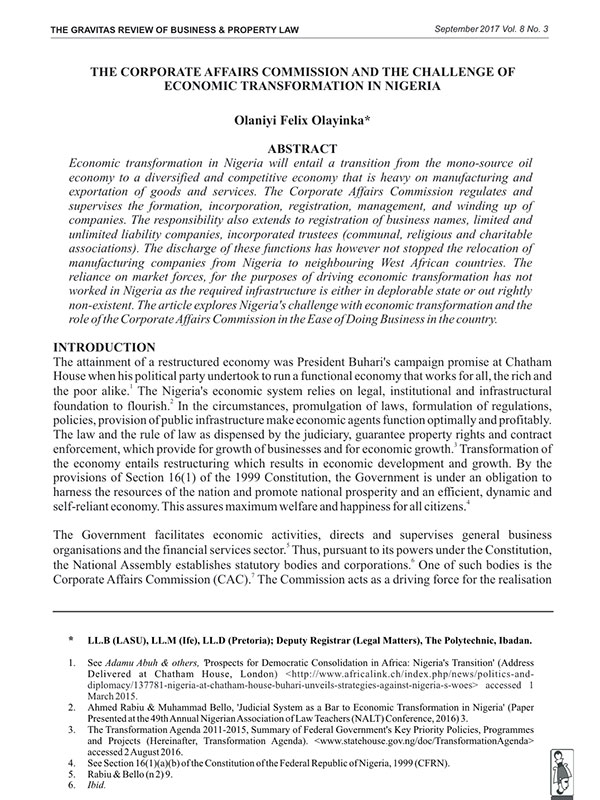
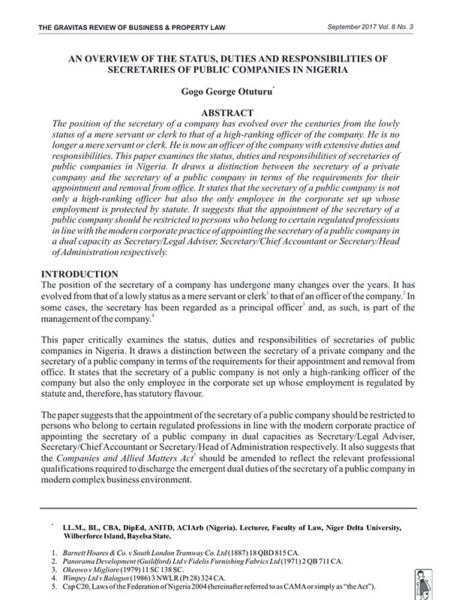
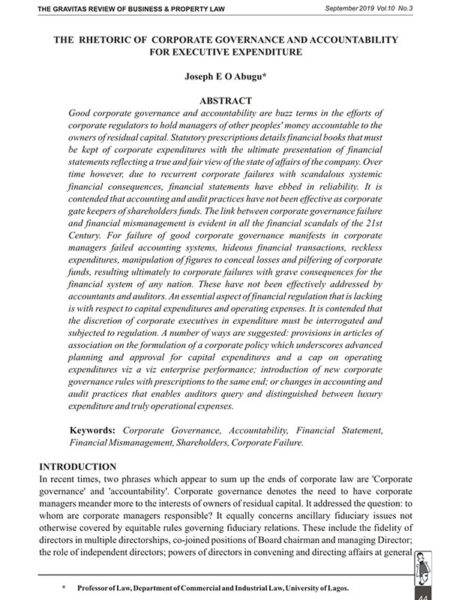
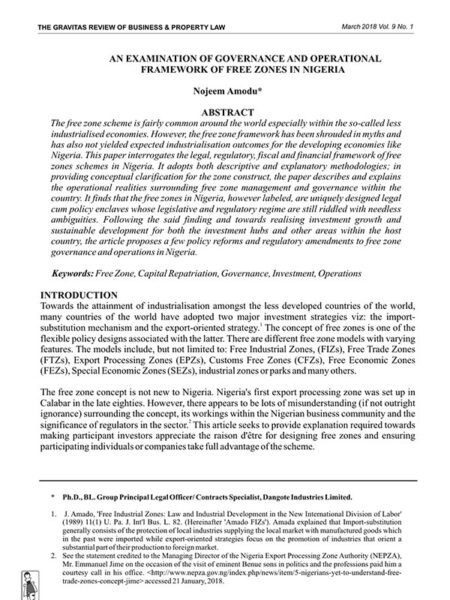
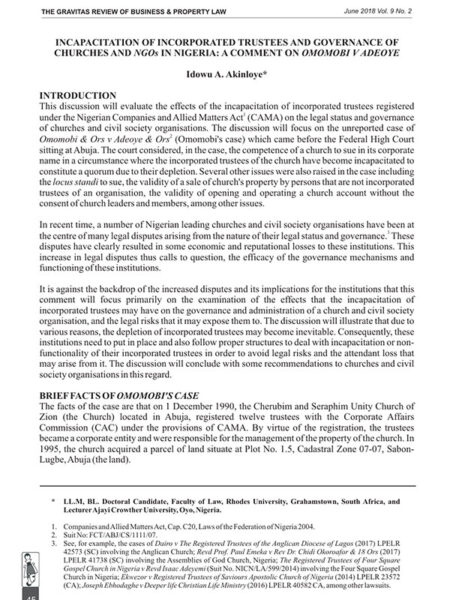


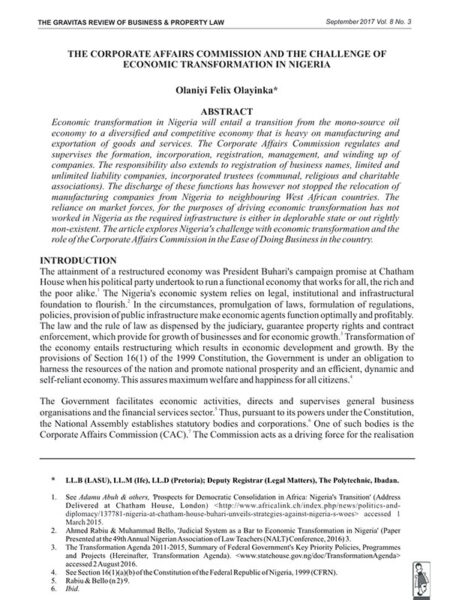
Reviews
There are no reviews yet.